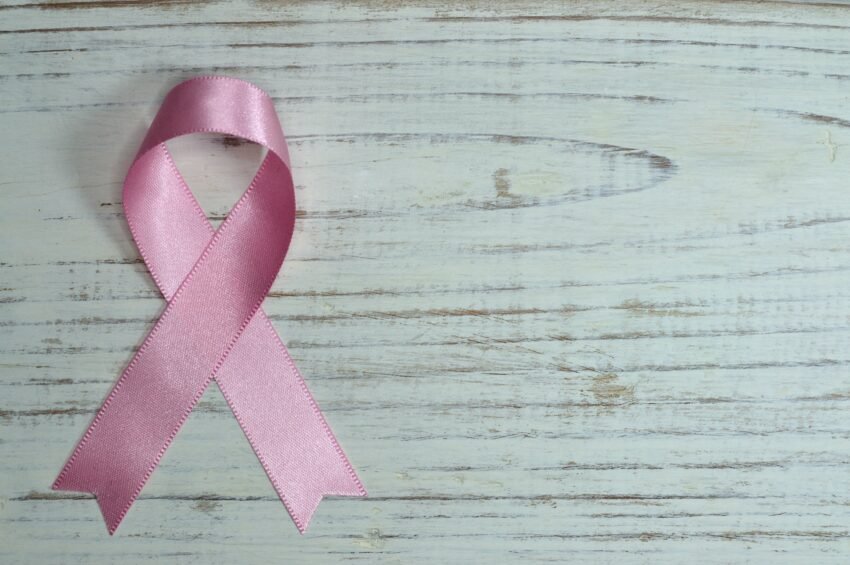Cancer is a devastating diagnosis, and aside from conventional treatments like chemotherapy and radiation, patients often wonder if there are alternative therapies available. With the goal of providing hope and additional options, this article explores the realm of alternative therapies for cancer patients. From herbal supplements to acupuncture, let’s delve into the world of alternative treatments and discover their potential benefits for those fighting cancer.

Alternative Therapies
Cancer treatments can often be intense and come with various side effects. Many cancer patients seek alternative therapies to complement their medical treatments, manage symptoms, and improve their overall well-being. Alternative therapies offer a holistic approach to healthcare, focusing on the mind, body, and spirit. They can be used alongside conventional treatments to enhance the healing process and promote overall wellness. In this article, we will explore several alternative therapies that have shown promise in helping cancer patients cope with their condition and improve their quality of life.
Herbal Medicine
Herbal medicine, also known as botanical medicine, involves the use of plants and plant extracts to treat and prevent illness. It has been practiced for centuries and is based on the belief that natural substances can support the body’s healing processes. Various herbs and plants have been used in traditional medicine systems worldwide to manage symptoms, boost the immune system, and even potentially inhibit the growth of cancer cells. However, it’s essential to remember that herbal remedies should always be used under the supervision of a qualified healthcare professional, as they can interact with cancer treatments or other medications.
Acupuncture
Originating from ancient Chinese medicine, acupuncture involves the insertion of thin needles into specific points on the body to stimulate energy flow and promote healing. This alternative therapy is believed to restore balance in the body and alleviate pain, nausea, and fatigue commonly experienced by cancer patients. Many cancer centers now offer acupuncture as a complementary therapy option to help manage treatment side effects and improve overall well-being. However, it is crucial to consult with an experienced and licensed acupuncturist who has experience in working with cancer patients.
Mind-Body Interventions
The mind-body connection is increasingly recognized as an essential aspect of health and well-being. Mind-body interventions focus on various techniques that harness the power of the mind to positively impact physical health. Some popular mind-body interventions for cancer patients include meditation, yoga, and hypnosis.
Meditation
Meditation is a practice that involves training the mind to achieve a state of deep relaxation and focus. It has been shown to reduce stress, anxiety, and depression, which are common struggles for cancer patients. Meditation can be beneficial in improving sleep quality, boosting the immune system, and promoting a sense of calm and overall well-being. There are various forms of meditation, including mindfulness meditation, guided meditation, and transcendental meditation. Cancer patients can explore these techniques to find the one that resonates most with them.
Yoga
Yoga is a mind-body practice originating from ancient Indian philosophy. It combines physical postures, breathing exercises, and meditation to promote flexibility, strength, and relaxation. For cancer patients, yoga can provide numerous benefits, such as alleviating treatment side effects, reducing fatigue, improving sleep, and enhancing overall quality of life. However, it is crucial to work with a certified yoga instructor who has experience in adapting yoga practices to the unique needs and limitations of cancer patients.
Hypnosis
Hypnosis is a therapeutic technique that induces a state of heightened focus and relaxation. It allows individuals to access their subconscious mind and make positive changes in their thoughts, feelings, and behaviors. Hypnosis has been used as a complementary therapy for cancer patients to manage pain, reduce treatment-related anxiety, and improve overall well-being. It is typically facilitated by a trained healthcare professional who specializes in hypnotherapy.
Energy Therapies
Energy therapies are based on the concept that the body has an energy field that can be manipulated to promote healing. These therapies aim to unblock energy pathways and restore the flow of energy throughout the body. Two popular energy therapies for cancer patients are Reiki and Qigong.
Reiki
Reiki is a Japanese energy healing technique that involves the gentle laying of hands on or near the body. The practitioner channels the universal life force energy to remove energetic blockages and promote self-healing. Many cancer patients find Reiki sessions to be deeply relaxing and comforting. It can help reduce pain, anxiety, and stress while promoting a sense of peace and balance. Reiki is a non-invasive therapy that can be safely used alongside conventional cancer treatments.
Qigong
Qigong is a Chinese practice that combines gentle movements, breath control, and meditation to cultivate and balance the body’s vital energy, known as “qi.” It is believed that practicing Qigong can strengthen the body’s natural healing mechanisms, improve overall health, and increase energy levels. For cancer patients, Qigong can offer physical and emotional benefits, such as reducing fatigue, enhancing relaxation, and supporting mental clarity. It is often taught in group settings or through individual instruction.
Dietary Approaches
Diet plays a significant role in overall health, and certain dietary approaches have gained attention for their potential benefits in supporting cancer treatment. Two dietary approaches worth considering are a plant-based diet and fasting.
Plant-Based Diet
A plant-based diet emphasizes the consumption of whole grains, legumes, fruits, vegetables, nuts, and seeds while minimizing or excluding animal products. Many studies have shown that a plant-based diet can help reduce the risk of developing various types of cancer and improve overall health outcomes. For cancer patients, adopting a plant-based diet can provide essential nutrients, antioxidants, and phytochemicals that support the body’s healing processes and boost the immune system. However, it is essential to work with a registered dietitian to ensure that nutritional needs are adequately met.
Fasting
Fasting involves voluntarily abstaining from food for a specific period. Intermittent fasting and prolonged fasting are two types of fasting that have gained traction in the field of cancer research. There is growing evidence suggesting that fasting can enhance the effectiveness of conventional cancer treatments, reduce treatment-related side effects, and potentially slow down tumor growth. However, it is crucial to consult with a healthcare professional before embarking on any fasting regimen, as individual factors and cancer treatments need to be taken into consideration.

Hyperthermia
Hyperthermia therapy involves exposing the body to high temperatures to treat various medical conditions, including cancer. It is based on the principle that heat can selectively destroy cancer cells while minimizing damage to healthy cells. Two types of hyperthermia commonly used for cancer treatment are localized hyperthermia and whole-body hyperthermia.
Localized Hyperthermia
Localized hyperthermia focuses on heating specific areas of the body that contain cancer cells. This can be achieved through various methods, such as external applicators, which deliver heat to tumors from outside the body, or internal probes, which deliver heat directly to tumors. Localized hyperthermia has been used in combination with radiation therapy or chemotherapy to enhance their effectiveness and improve tumor response.
Whole-Body Hyperthermia
Whole-body hyperthermia involves raising the body’s core temperature to a therapeutic level. This can be achieved through techniques like infrared saunas or specialized equipment that deliver heat throughout the body. Whole-body hyperthermia is thought to stimulate the immune system, enhance blood circulation, and potentially increase the effectiveness of cancer treatments. However, it is crucial to discuss the potential benefits and risks of whole-body hyperthermia with your medical team before considering this therapy.
Cannabinoids
Cannabinoids are compounds found in the cannabis plant that have shown potential in managing symptoms and side effects associated with cancer and its treatments. Two commonly discussed cannabinoids are medical marijuana and CBD oil.
Medical Marijuana
Medical marijuana refers to the use of cannabis plants or its extracts to alleviate symptoms related to various medical conditions, including cancer. It contains cannabinoids that can help reduce pain, nausea, appetite loss, and insomnia, which are common concerns for cancer patients. However, the use of medical marijuana should be guided by a healthcare professional who can provide appropriate dosing and monitor potential interactions with other medications.
CBD Oil
CBD (cannabidiol) oil is a non-intoxicating compound derived from the cannabis plant. It has gained significant attention for its potential therapeutic benefits, including its anti-inflammatory and analgesic properties. For cancer patients, CBD oil can help alleviate pain, reduce chemotherapy-induced nausea and vomiting, and improve sleep quality. As with any alternative therapy, it is essential to consult with a healthcare professional to ensure its safe and appropriate use.

Manual Therapies
Manual therapies involve the hands-on manipulation of the body’s soft tissues to improve physical and emotional well-being. Two common manual therapies used by cancer patients are massage therapy and chiropractic care.
Massage Therapy
Massage therapy involves the manipulation of muscles and soft tissues to promote relaxation, relieve pain, and enhance overall well-being. For cancer patients, massage therapy can help alleviate treatment-related symptoms such as pain, fatigue, anxiety, and depression. It is essential to work with a licensed massage therapist who has experience in working with cancer patients and is knowledgeable about the potential risks, such as increased lymphatic flow, depending on the individual’s cancer diagnosis and treatment.
Chiropractic
Chiropractic care focuses on the diagnosis and treatment of musculoskeletal conditions, primarily targeting the spine and nervous system. Cancer patients may benefit from chiropractic care to manage pain, improve mobility, and enhance overall physical function. It is crucial to choose a chiropractor who has experience in working with cancer patients and can tailor treatments to address the unique needs and limitations arising from the disease.
Exercise and Physical Activities
Regular exercise and physical activities are vital for overall health and well-being, including for cancer patients. Engaging in exercise routines can improve physical strength, boost mood, increase energy levels, and enhance quality of life. Two types of exercises commonly recommended for cancer patients are aerobic exercise and strength training.
Aerobic Exercise
Aerobic exercise, also known as cardiovascular exercise, involves activities that increase heart rate and breathing, such as walking, swimming, biking, or dancing. Engaging in aerobic exercise can help improve cardiovascular health, endurance, and lung capacity. For cancer patients, aerobic exercise can also aid in managing treatment-related side effects, reducing fatigue, and improving overall well-being. It is important to start gradually and work with a healthcare professional or a certified exercise specialist who can design an exercise plan suitable for individual circumstances.
Strength Training
Strength training, also known as resistance or weight training, involves activities that target muscle groups to build strength and endurance. It can be performed using free weights, weight machines, resistance bands, or bodyweight exercises. Strength training has numerous benefits for cancer patients, including improving muscle mass and bone density, increasing functional capacity, and aiding in the management of treatment-related side effects such as fatigue. Just like with any exercise regimen, it is crucial to consult with a healthcare professional or an exercise specialist to ensure proper technique and safety.

Music and Art Therapy
Expressive arts therapies, such as music therapy and art therapy, utilize creative processes to enhance emotional, psychological, and physical well-being. These therapies can provide a means of self-expression, help manage stress, and provide emotional support for cancer patients.
Music Therapy
Music therapy involves the use of live or recorded music to address the physical, emotional, cognitive, and social needs of individuals. Music therapists create personalized treatment plans that may involve listening to music, participating in music-making activities, or engaging in guided imagery with music. For cancer patients, music therapy has been shown to reduce anxiety, improve mood, enhance relaxation, and provide a sense of support and connection. It is often provided in both individual and group settings.
Art Therapy
Art therapy utilizes various art forms, such as painting, drawing, and sculpting, as a means of self-expression and processing emotions. It can help cancer patients explore their feelings, reduce stress, and promote a sense of inner peace and well-being. Art therapy sessions are facilitated by trained art therapists who guide individuals through the creative process and provide a space for reflection and growth. Art therapy can be offered in group settings or on an individual basis.
Psychosocial Support
Psychosocial support refers to various interventions and resources that aim to address the psychological, social, and emotional aspects of living with cancer. It plays a crucial role in helping individuals cope with the challenges of their diagnosis and treatment. Two common forms of psychosocial support for cancer patients are support groups and counseling.
Support Groups
Support groups consist of individuals facing similar challenges who come together to share their experiences, exchange advice, and offer each other emotional support. Support groups can be cancer-specific or focus on particular aspects of the cancer journey, such as survivorship, caregiver support, or bereavement. Joining a support group can provide a sense of belonging, reduce isolation, and offer practical insights into managing the physical and emotional impacts of cancer.
Counseling
Counseling provides individuals with a safe and confidential space to explore their thoughts and emotions related to cancer. Professional counselors or therapists can help individuals manage stress, anxiety, depression, and relationship struggles that may arise during their cancer journey. Counseling techniques may include talk therapy, cognitive-behavioral therapy, and other evidence-based approaches tailored to individual needs. Working with a counselor can provide emotional support, coping strategies, and tools to enhance overall well-being.
In conclusion, alternative therapies can play a significant role in supporting cancer patients’ overall well-being. From herbal medicine and acupuncture to mind-body interventions, energy therapies, dietary approaches, hyperthermia, cannabinoid therapy, manual therapies, exercise, music, and art therapy, to psychosocial support, there are numerous alternative options available to enhance the healing process and improve quality of life during cancer treatment. Always consult with a healthcare professional before incorporating any alternative therapy to ensure its safety and appropriateness, considering individual circumstances and ongoing medical treatments.



